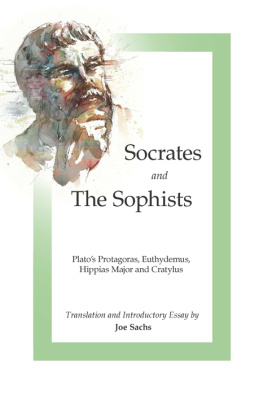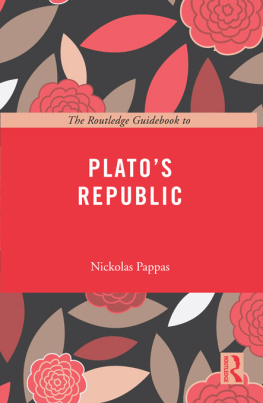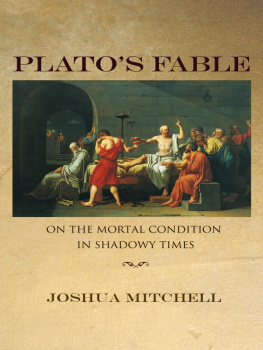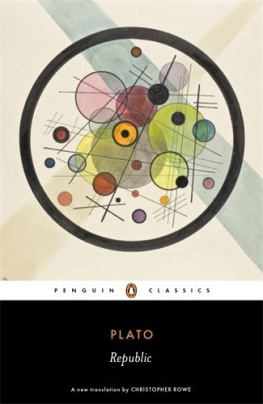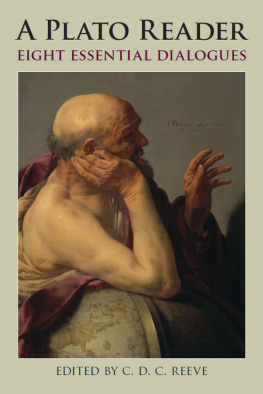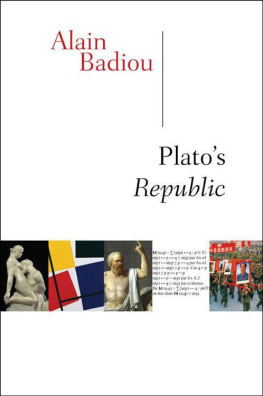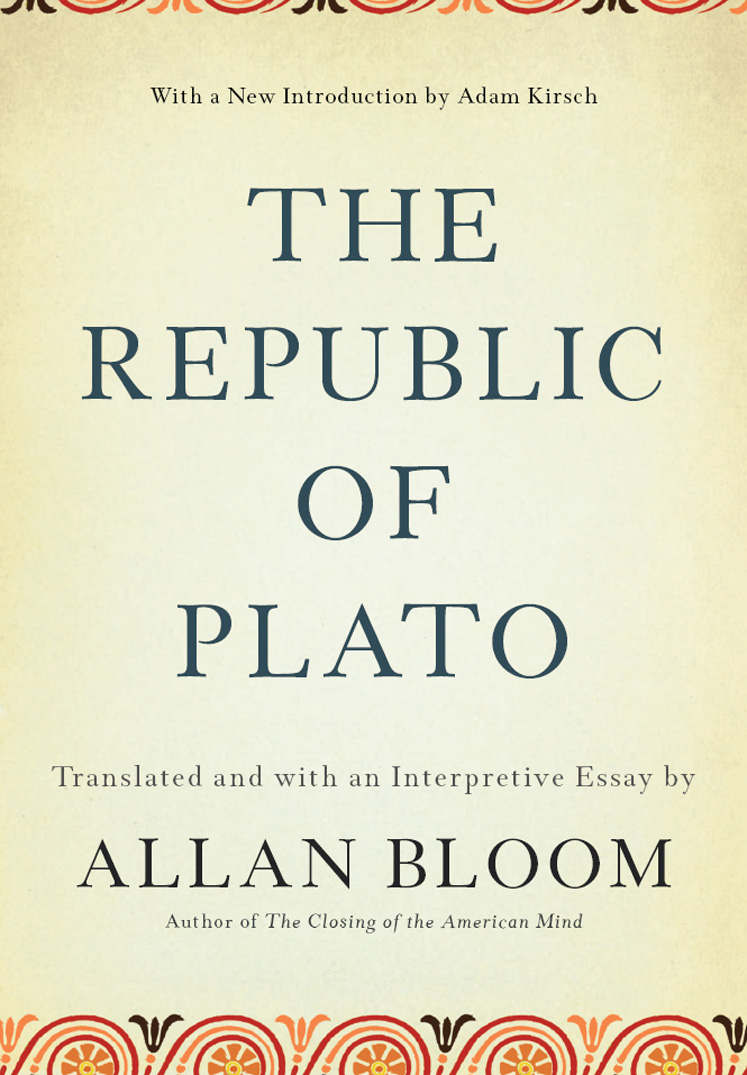THE REPUBLIC OF PLATO

Copyright 1968 by Allan Bloom
Preface to the Second Edition Copyright 1991 by Allan Bloom
Introduction to the 2016 Edition Copyright 2016 by Adam Kirsch
Published in the United States by Basic Books, an imprint of Perseus Books, LLC, a subsidiary of Hachette Book Group, Inc.
All rights reserved. Printed in the United States of America. No part of this book may be reproduced in any manner whatsoever without written permission except in the case of brief quotations embodied in critical articles and reviews. For information, address Basic Books, 250 W. 57th St, 15th floor, New York, NY 10107.
Books published by Basic Books are available at special discounts for bulk purchases in the United States by corporations, institutions, and other organizations. For more information, please contact the Special Markets Department at the Perseus Books Group, 2300 Chestnut Street, Suite 200, Philadelphia, PA 19103, or call (800) 810-4145, ext. 5000, or e-mail .
Designed by Jacqueline Schuman
Library of Congress Catalog Number: 68-54141
ISBN 978-0-465-09409-7 (e-book third edition)
10 9 8 7 6 5 4 3 2 1
To my mother and father
Table of Contents
Guide
CONTENTS
ADAM KIRSCH
Plato never wrote a book called The Republic. He couldnt have, because republic is an English wordpart of a language that didnt even exist in the fourth century BCE, when Plato composed his famous dialogue in Greek. This may sound like a trivial objection; of course, Plato didnt write The Republic, any more than he wrote La Rpublique or La Repubblica, as the book is known in France and Italy. But the word republic, like its cognates in other European languages, inevitably summons up a whole host of implications that may obscure Platos meaning more than they reveal it. Starting with its title, in other words, Platos book forces us to confront the problem of translationthe way it shapes, and misshapes, our experience of a text.
A republic, according to the Oxford English Dictionary, is a state in which power rests with the people or their representatives, specifically a state without a monarchy. It is in this sense that the American founders used the word to describe the government they were establishing. An old story has it that when Benjamin Franklin was leaving the Constitutional Convention in Philadelphia in 1787, he was asked whether the country now had a republic or a monarchy; to which he replied, A republicif you can keep it. This is the sense of the word claimed by the early Democratic-Republicans in American politics, transmitted down the generations to todays Republican Party.
It was the Roman philosopher Cicero, writing in the first century BCE, who wrote the first dialogue on politics with the title The RepublicDe re publica. And it was by association with Ciceros work that Platos began to be known by the same title, first in Latin, then in modern European languages. But the title Plato gave his book was a Greek word: politeia. Different scholars and translators offer different interpretations of what this word actually meant to Plato. It comes from the root polis, city, and politeia has something to do with the way a city is organized and governed; constitution, or polity, or commonwealth are all possibilities.
But Allan Bloom, in this masterful and highly influential translation, writes that the best English term for translating it is regime. The word regime has a sterner, perhaps more ominous sound in English than does republic. Notably, it is a word we Americans never use about our own government, only about foreign governments we dislike (the Castro regime, for instance). A regime sounds like it is imposed from above, like it encompasses more of life than just politics; a regime is almost a regimen.
It is for exactly these reasons that Bloom chooses the word. A regime, a politeia, is for Plato more than just the abstract description of a system of government. An attempt to recover the Greek understanding of human things, Bloom writes, requires a consideration of the sense in which the politeia is the single most important political fact and the cause of mens characters and ways of life. Indeed, though The Republic is preeminently a work of political philosophythe first book of political philosophy ever written, and the most importantit is about much more than politics in the narrow sense of the word. Over the course of these ten books, Plato discusses the varieties of human character, the nature of justice, family and gender relations, the dangerous power of poetry, the definition of truth, and the calling of the philosopher. For Plato, talking about the best regime means talking about everything of greatest importance to human beings.
Talking is the key word here, as The Republic takes the form of a dialogue. It is the imaginary record of a very long conversation between people who really existedSocrates, who was Platos teacher, and several young Athenian men, including Platos own brothers Glaucon and Adeimantus. Unlike most philosophersunlike his own pupil Aristotle, for instancePlato did not write treatises, in which he systematically laid out what he believed. Rather, his work consists mostly of dialoguesdiscussions and arguments, usually between Socrates and one or more other men. Socrates himself, the inventor of Western philosophy, did not write any books at all. His insights were all developed in the course of intimate conversations, and his goal was not so much to create a philosophical system as it was to enlighten and transform the minds of his interlocutors. Platos dialogues may or may not accurately reflect the kinds of things Socrates saidscholars debate this point extensively. But by writing dialogues, he was certainly attempting to capture the dialectic nature of Socratic reasoning, the way it used argument to expose inconsistency, falsehood, and prejudice.
The Republic was written about 375 BCE, when Plato himself was around fifty years old, and it is set several decades in the past. Bloom suggests that it is meant to take place around the year 411 BCE, though other scholars argue for earlier or later dates. Between the date of its action and that of its writing, the city of Athens went through a very traumatic period of its history, losing a major war and seeing a series of changes of regime. Most important, for philosophy at any rate, was the event that took place in 399 BCE: the execution of Socrates, for the crimes of disbelieving in the gods and corrupting the youth of the city. Socratess trial, including the highly ironic speech he delivered in his own self-defense, is recorded in Platos Apology. Socratess suggestion that, far from persecuting him, the Athenians should consider him a public benefactor, failed to convince a majority of the citys assembly, which voted to put him to death.
For Bloom, a proper understanding of The Republic rests on the premise that the book is a dialogue, a dramatic work rather than a polemical one. This insight guides the method of Blooms translation, as he describes it in his preface. Plato, he insists, was not offering a set of abstract ideas that can just as well be put in different words. You cant paraphrase or summarize Plato without doing serious damage to his meaning. That is because he was composing a literary work, whose form is crucial to its content. Like a poem, a Platonic dialogue is made up of what Samuel Taylor Coleridge called the best words in the best order.



